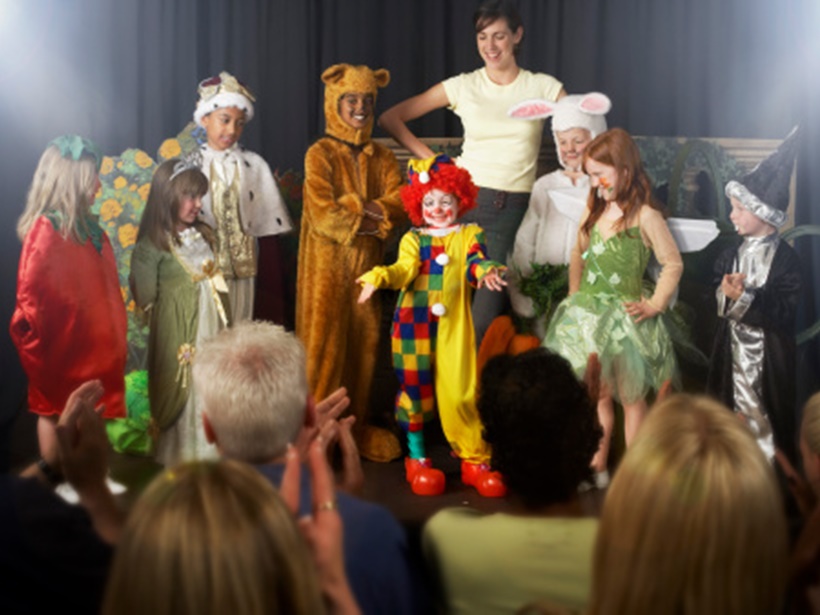How exactly can doing theatre benefit your child? Express Parenting got in touch with some experts to find out.
Academic achievement is not the only yardstick of a child’s development. Most children are encouraged to take part in extra-curricular activities by parents and teachers, but only as long as it doesn’t interrupt their academic schedule. The same guardians criticise the child the moment he or she starts prioritising an activity over studies.
These extra-curricular activities, from sports, painting to performing arts, initiate an overall development while teaching life skills to children. Drama, for instance, has quite a significant impact on a child’s growth. Drama or theatre is hardly limited to performing in plays in school or in front of a neighbourhood gathering. It is being increasingly pursued as a profession, from a very young age. But how exactly can doing theatre benefit your child? Express Parenting got in touch with some experts to find out:
An overall personality development
To begin with, theatre, like every other performing art, requires extensive practice and dedication, thereby disciplining your child. It also instills confidence and teaches your child coordination and how to work as a team, which are skills that definitely come handy in future. Besides, acting also improves one’s speech, body language and sensory integration.


“It is the only art form which is all encompassing. It includes dance, music, literature, fine arts among many others. Every child should be encouraged to do theatre because it works on a child’s creative, emotional, intellectual and spiritual quotients,” said Rachana Prasad, founder and director, Chiranthana which is devoted to help children explore the world of drama.
Free expression
Theatre gives your child the freedom of expression. “It helps him or her give free expression to personal thoughts, ideas and instincts, leading to self-confidence and hence self-esteem,” actor and playwright Sohaila Kapur explained. In fact, a child’s lack of experience acts as a boon on his or her approach towards the performance. “A child acts on instinct, which is the purest form of thought. A child emulates without ego hassles, which often makes for a better performance,” Kapur highlighted.


Prasad added, “Through theatre, your child undergoes the process of designing a set, playing a role, managing teams and all this opens up pathways to explore their emotions and views. It enables them to think freely, explore and express without inhibitions.” Allowing the child to express freely has therapeutic effects on him or her, as it helps in internalising and contextualising and rediscovering emotions, all leading to mental growth and maturity.
Theatre is educative
Knowledge is not just restricted to books. Theatre is an interesting medium for your child to comprehend ways of the world. Through theatre, the child learns about cultural and socio-economic issues, helping him or her build a conscience. With people belonging to different social and economic backgrounds coming together on the same platform, theatre can also be a “big leveller”, said Prasad. She further added, “Theatre also gives a great exposure to literature, history and current affairs. It fosters a child’s imagination in an educative yet fun filled way.”
How to train a child
Unlike adults, who have already lived their share of experiences, teaching theatre to a child needs a great deal of patience to help bring out the best of his or her performance. In an interview, Pihu director Vinod Kapri talked about his experience of working with a then two-year-old actor Myra Vishwakarma, and said, “We gave her time to acquaint herself with the space as well as the crew. We would shoot for two hours a day. There were three cameras placed on the set because you can’t ask a two-year-old to give another take.”
Prasad advised, “While the child needs to understand the importance of performing to a scene, the child should be thoroughly oriented on the ‘appropriate’ behaviour patterns expected of him in the society. Also, it’s good to give a child lot of emotional vocabulary to deal with emerging trends or mood swings in himself or herself. A child needs to be spoken to, patiently heard and answered in situations like these.”
Source: Read Full Article
